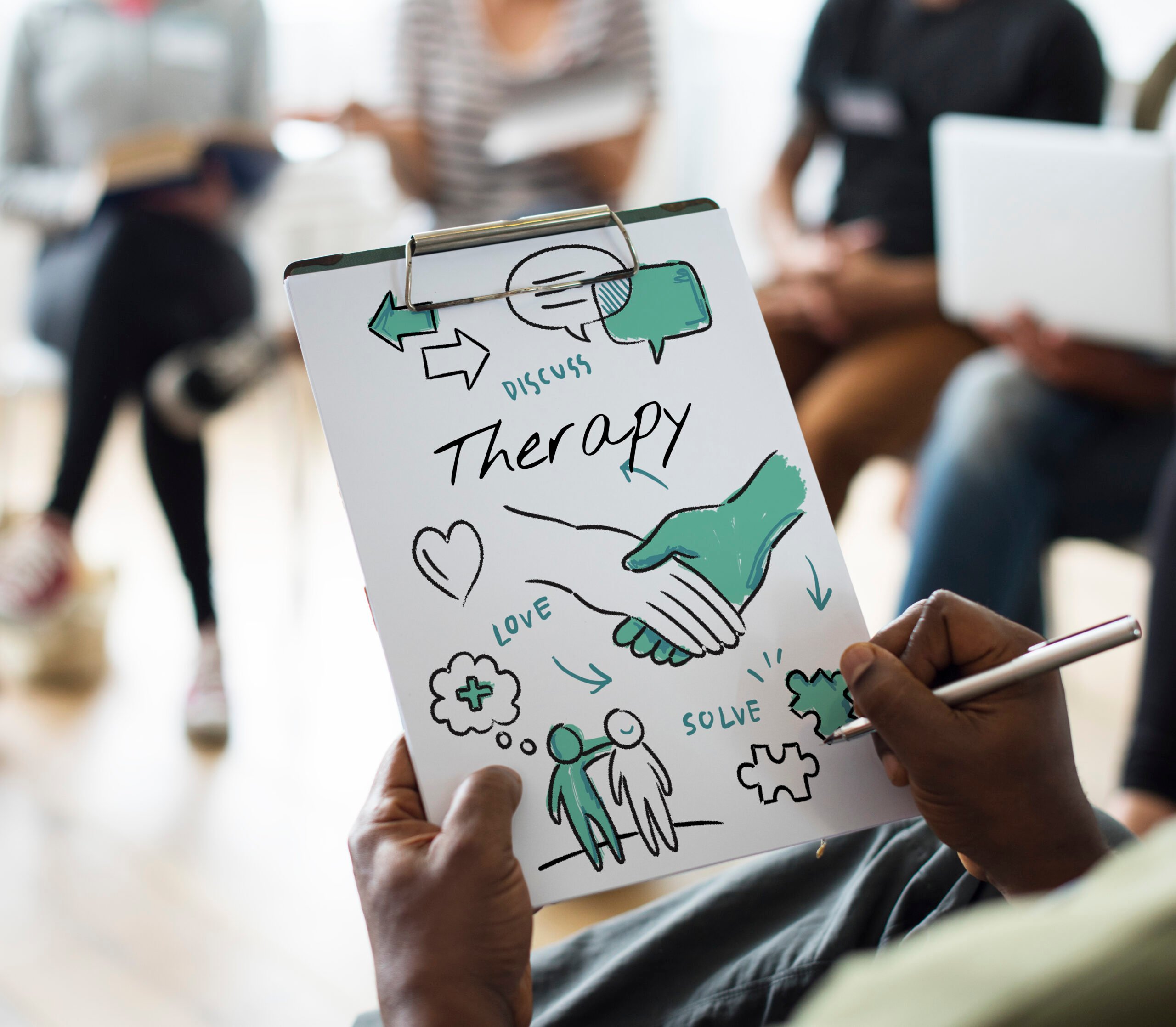What Are The Types of Therapy for Mental Health Issues?

Types of Therapy for Mental Health Issues: Exploring Your Options
When it comes to mental health, therapy is an essential tool for recovery. There is no “one-size-fits-all” approach, each person’s journey is unique, and the therapy you choose should align with your personal needs. At Sanctuary Clinics, we believe in helping individuals access the right kind of therapy for their situation.
1. Cognitive Behavioural Therapy (CBT)
Best for: Anxiety, depression, and stress
How it works: CBT helps individuals identify and change negative thought patterns that influence emotions and behaviour. It focuses on practical coping skills to improve day-to-day life.
2. Psychodynamic Therapy
Best for: Childhood trauma, relationship struggles, and unresolved emotional conflicts
How it works: This therapy explores how past experiences and unconscious patterns influence present-day behaviour. By bringing hidden issues to light, clients gain self-awareness and healing.
3. Dialectical Behaviour Therapy (DBT)
Best for: Intense emotions, self-harm, and relationship challenges
How it works: DBT combines cognitive-behavioural techniques with mindfulness practices. It teaches skills for regulating emotions, tolerating distress, and improving interpersonal effectiveness.
4. Interpersonal Therapy (IPT)
Best for: Depression, grief, and communication difficulties
How it works: IPT focuses on relationships and social interactions. It helps clients resolve conflicts, strengthen connections, and reduce emotional distress caused by interpersonal issues.
5. Family Therapy
Best for: Family conflict, parenting challenges, and teen issues
How it works: Family therapy involves multiple family members in sessions to improve communication, resolve conflicts, and build stronger support systems at home.
Choosing the Right Therapy
The most effective therapy depends on your needs, personality, and goals. Many people benefit from a combination of approaches, and it often takes time to find the right fit.
| Therapy Type | Best For | How It Works |
| Cognitive Behavioral Therapy (CBT) | Anxiety, depression, OCD, eating disorders, phobias | Focuses on identifying and changing negative thought patterns and behaviours |
| Dialectical Behavior Therapy (DBT) | Borderline Personality Disorder (BPD), emotional dysregulation, self-harm | Combines CBT with mindfulness, teaches distress tolerance and emotional regulation |
| Psychodynamic Therapy | Childhood trauma, relationship issues, deep emotional conflict | Explores unconscious patterns formed in early life that affect current behaviour |
| Humanistic / Person-Centered Therapy | Low self-esteem, personal growth, life transitions | Emphasizes self-acceptance and self-exploration through a non-judgmental, empathetic therapist |
| Mindfulness-Based Therapy (MBCT / MBSR) | Stress, anxiety, depression relapse prevention | Uses mindfulness practices to break negative thought loops and improve present-moment awareness |
| Eye Movement Desensitization and Reprocessing (EMDR) | PTSD, trauma, anxiety | Uses guided eye movements to process and reduce distress from traumatic memories |
| Acceptance and Commitment Therapy (ACT) | Anxiety, depression, OCD, chronic pain | Teaches psychological flexibility—accepting thoughts without judgment and committing to values |
| Solution-Focused Brief Therapy (SFBT) | Goal-setting, problem-solving, short-term issues | Focuses on solutions rather than problems; builds on strengths and what’s working |
| Interpersonal Therapy (IPT) | Depression, grief, social anxiety, relationship conflict | Helps improve communication skills and manage relationship patterns |
| Family Therapy | Family conflict, parenting challenges, teen issues | Involves the whole family to improve communication, resolve issues, and build stronger bonds |
| Couples Therapy / Marriage Counseling | Relationship conflict, communication breakdowns | Helps couples resolve conflicts and rebuild connection and trust |
| Art / Expressive Therapy | Trauma, children’s mental health, non-verbal processing | Uses creative outlets (art, music, movement) to express and process emotions |
| Narrative Therapy | Identity issues, trauma, depression | Helps clients reframe their personal stories in empowering and healing ways |
| Group Therapy | Addiction, grief, social anxiety, support networks | Led by a therapist; offers peer support and shared experiences in a safe space |
Support Starts Here
At Sanctuary Clinics, we offer a range of therapeutic options tailored to each individual. Reach out to us to explore the right therapy for you and take your first step towards healing.




